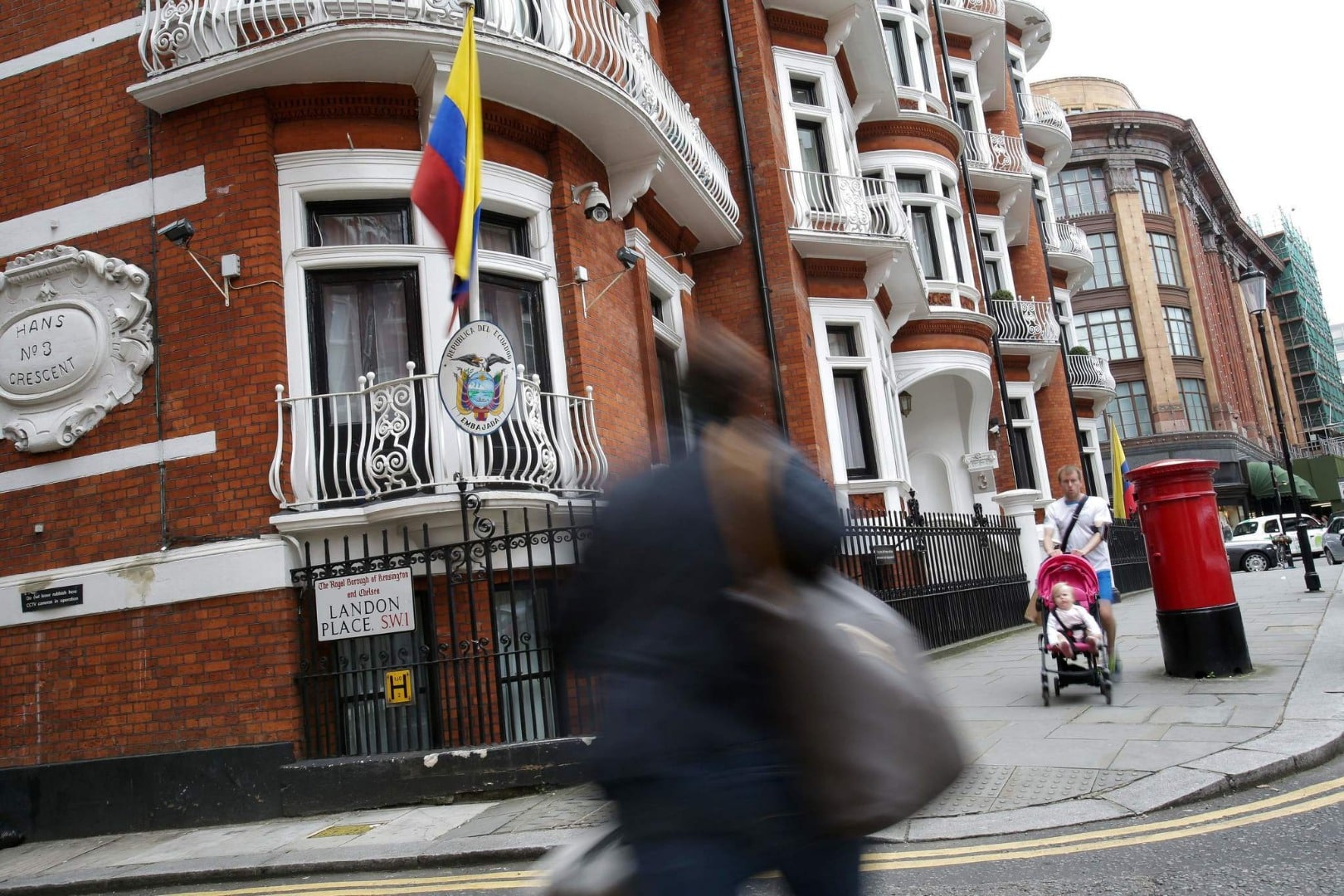It was meant to be a routine visit by a journalist to another journalist. Instead, I found myself locked in a cold, surveilled room for over an hour by Ecuadorian officials, as a furious argument raged between the country’s ambassador and Julian Assange.
The room was inside the Ecuadorian Embassy in London, where 2019 Nobel Peace Prize nominee Julian Assange currently lives under the ostensible protection of political asylum. Yet the WikiLeaks publisher was barred from entering the room, where he was supposed to join me for a pre-approved meeting, because he refused to submit to a full-body search and continuous surveillance.
In the fireworks that followed, Assange accused the ambassador of being an agent of the United States government.
The crackdown on visitors was felt before I even entered the embassy. It’s the third time I’ve visited in the past year, and each time the atmosphere seems progressively worse.
Just like my previous visit, since new rules for visitors were enacted, I couldn’t take my phone into the meeting without giving the Ecuadorian officials a swathe of data. If you want to take it in with you, they request its brand, model, serial number, IMEI number, and telephone number. I was also advised that Ecuador could not be trusted to hold my phone while I met with Assange, so I left it behind and walked to the embassy phoneless, several minutes early to make sure I was on time.
When I arrived, embassy staff checked my passport and letter of approval and pointed at the time on the letter. I was six minutes early. Instead of allowing me to wait inside, they told me to come back at the appropriate time — despite knowing that I did not have a phone or watch on me.
When I visited for the first time, which I believe was a year ago to the day, the atmosphere was far more welcoming. The staff and ambassador that were there during my first visit have since been replaced.
After being searched, the staff directed me into the conference room, where two large visible cameras were pointed at the table. Those were there last time too. I knew the drill — or so I thought. They reminded me multiple times that my visit was only approved until 5 p.m. and that I would need to leave on the dot.
“Just doing my job,” the staff member told me.
A few moments later Assange walked by the door, but could not enter. Embassy staff demanded that he submit to a full-body scan with a metal detector before allowing him in the room. They have not done this with any other visitor in the nearly seven years that he has lived there, including during my previous visits.
“I don’t want to do the body scan. It is undignified and not appropriate,” I heard Assange say. “I am just trying to have a private meeting with a journalist.”
The door was slammed shut by someone from the embassy. I decided to sit and wait.
Not only would they not let Assange in to see me without a body-scan, they also forced his lawyer to be scanned before he could come in to update me on the situation.
After roughly 20 minutes, the lawyer came in and informed me that they were demanding to search Assange. Moreover, we would not be permitted to talk anywhere outside the highly-surveilled room where the Ecuadorians had confined me. Agreeing to these draconian terms would set a bad precedent — so he was unsure if the meeting would go ahead. After appraising me of the situation, he left the room.
A bit later, I decided to leave the room myself for an update from embassy staff. I quickly discovered that the door was locked from the outside. So I went to the second door — that was locked too. That was when I realized that Ecuadorian officials had deliberately imprisoned me in a room.
Fair Use Excerpt. Read the rest here.


